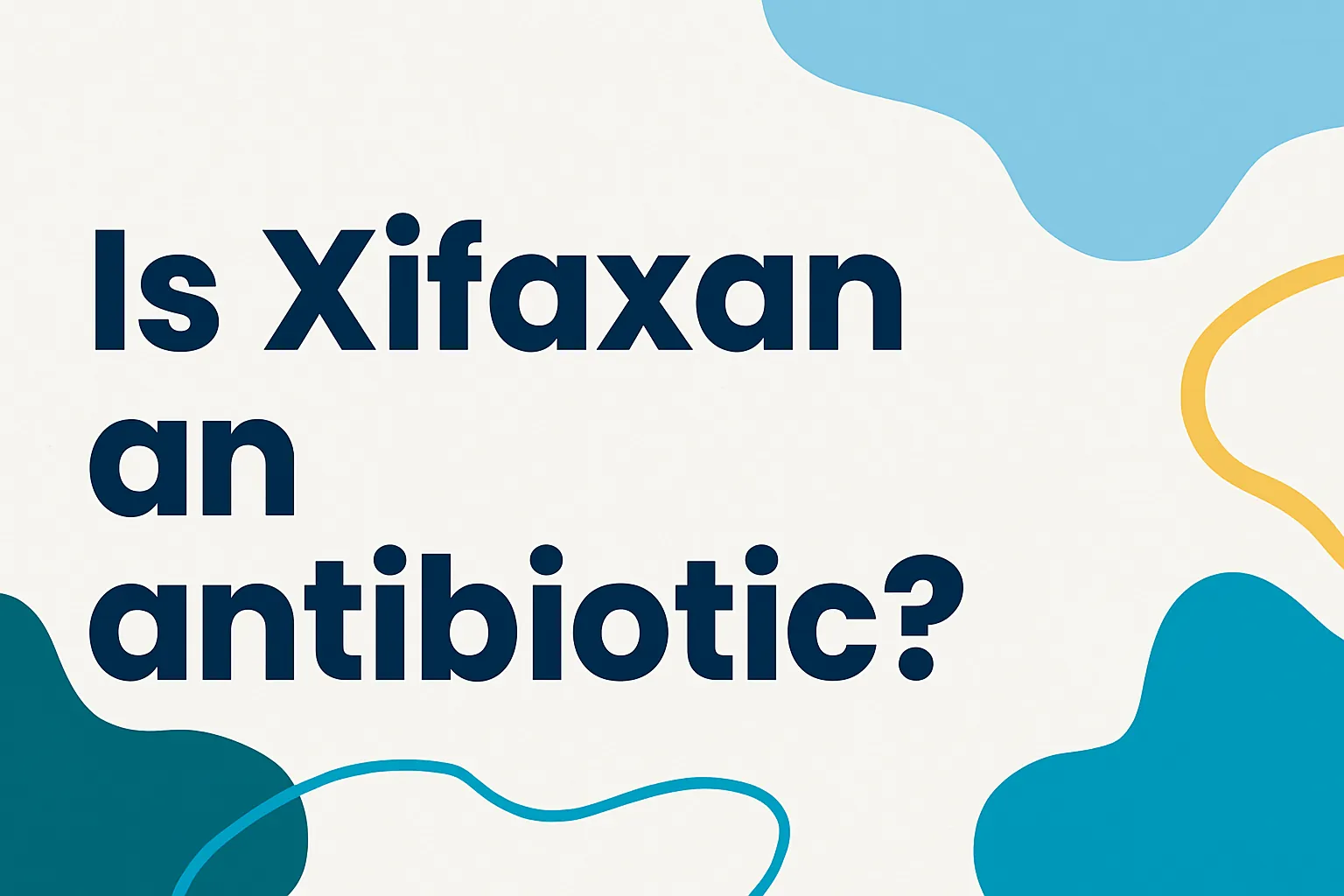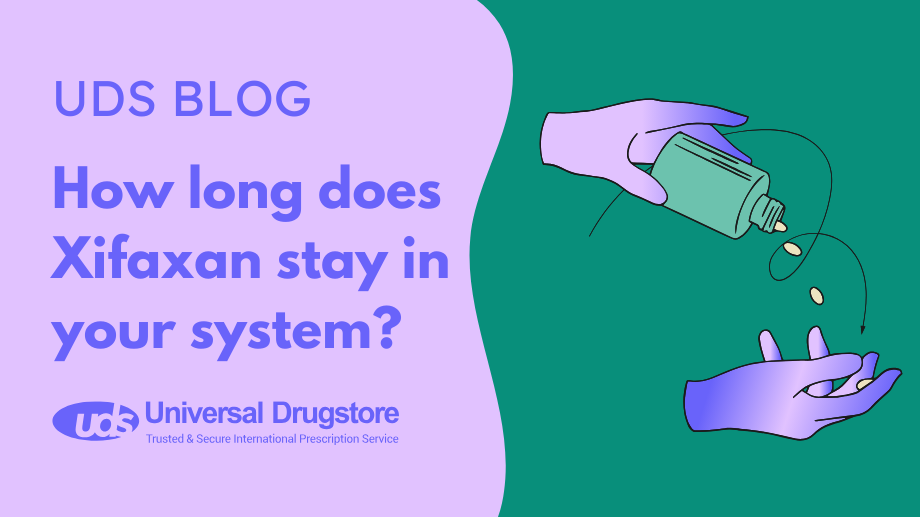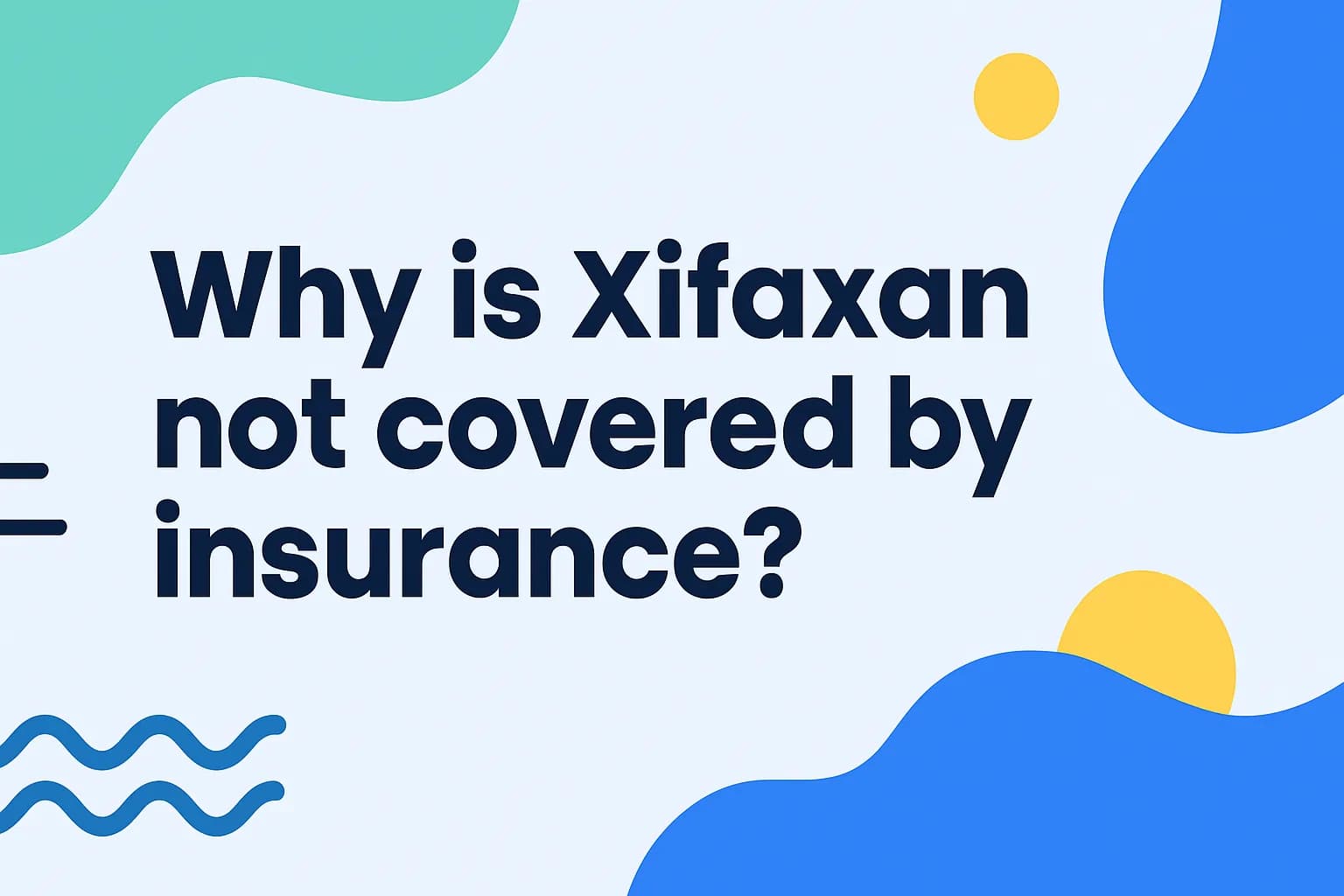Is Xifaxan an antibiotic?

Yes, Xifaxan (rifaximin) is a brand-name medication that is considered a rifamycin antibiotic. It works by stopping the growth of bacteria. Some other rifamycin antibiotics include Mycobutin (rifabutin), Rifadin (rifampin), and Priftin (rifapentine).
Xifaxan is FDA-approved for the treatment of traveler’s diarrhea caused by E. coli. It can also be used for hepatic encephalopathy, which is caused by severe liver disease, as well as irritable bowel syndrome with diarrhea (IBS-D), a gastrointestinal (GI) disorder that causes abdominal pain and frequent bowel movements.
As with any antibiotic, it is important to take Xifaxan exactly as prescribed by a healthcare professional, and the full course of treatment should be completed even if your symptoms improve before the medication is finished. It is important to note that Xifaxan is not effective against all types of bacteria and is specifically designed to treat certain bacterial infections in your GI tract.
Xifaxan FAQs
Why would someone need to take Xifaxan?
Xifaxan is approved by the U.S. Food and Drug Administration (FDA) to treat:
- Travelers’ diarrhea that is caused by an overgrowth of bacteria called Escherichia coli (E. coli). It is approved to treat adults and children 12 years of age and older.
- Overt hepatic encephalopathy (HE). Xifaxan is generally used in combination with Enulose (lactulose) to treat this condition.
- Irritable bowel syndrome with diarrhea (IBS-D). Xifaxan has been found effective for treating IBS-D. Guidelines from the American College of Gastroenterology recommend Xifaxan for the relief of IBS-D symptoms.
What are the common side effects of Xifaxan?
The most common side effects of Xifaxan seen in clinical studies when compared to placebo include:
- Headache
- Nausea
- Swelling in hands and feet
- Dizziness
- Tiredness
- Bloating and gas
- Increase in liver enzymes
Other possible side effects of Xifaxan include:
- Constipation
- Fever
- Muscle spasms
- Itching
- Stomach pain
- Depression
- Sore throat and runny nose
- Joint pain
- Rash
What are the serious side effects of Xifaxan?
Rarely, Xifaxan may cause serious side effects such as:
- Serious, life-threatening allergic reactions, including anaphylaxis
- Worsening traveler’s diarrhea
- C. difficile diarrhea
Xifaxan only works to treat travelers’ diarrhea caused by Escherichia coli. Other bacterial infections can cause travelers’ diarrhea and Xifaxan will not be effective against those. If your diarrhea symptoms get worse or persist for more than 24 to 48 hours, discontinue Xifaxan and consider alternative antibiotics.
All antibiotics, including Xifaxan, can cause a severe intestinal condition from a bacteria called Clostridium difficile (C. diff). This infection can lead to life-threatening colitis and requires immediate medical attention. Get medical help right away if you have symptoms such as increased heart rate, foul-smelling diarrhea, nausea, fever, and frequent bowel movements.
These are not all of the possible adverse events of Xifaxan. Always seek medical advice from a healthcare professional. You can report side effects to the FDA at 1-800-FDA-1088 or www.fda.gov/medwatch.
How does Xifaxan work?
The active ingredient in Xifaxan is rifaximin, which is a rifamycin antibiotic. It kills bacteria by stopping them from making certain proteins they need to survive.
What should you tell your healthcare provider before taking Xifaxan?
You should not take this medication if you have an allergy to rifaximin or any inactive ingredients. Avoid Xifaxan if you are allergic to other rifamycin antibiotics such as Mycobutin, Rifadin, or Priftin.
Shop Medications
Tell your healthcare provider if you have any of the following:
- Liver disease. Severe liver impairment can raise Xifaxan levels in your blood.
- Are pregnant or plan to become pregnant. It is unknown if Xifaxan is safe during pregnancy.
- Are breastfeeding or plan to breastfeed. It is unknown if Xifaxan passes into breast milk.
What other drugs interact with Xifaxan?
Xifaxan may interact with other prescription drugs, over-the-counter medications, vitamins, herbal products, and supplements. Inform your healthcare provider about all your medications. Some known interactions include:
- P-glycoprotein and/or OATP inhibitors such as cyclosporine
- Warfarin – your dose may need to be adjusted
This list is not complete. Many other drugs may interact with Xifaxan.
What dosage does Xifaxan come in?
Xifaxan is available in 200 mg and 550 mg tablets. Your dose will be determined by your healthcare provider based on your condition.
How well does Xifaxan work?
In clinical trials, around 80% of people taking Xifaxan for 2 weeks had relief of IBS-D symptoms for 10 weeks. If symptoms return, retreatment is no more effective than placebo.
In the treatment of traveler’s diarrhea, Xifaxan significantly decreased the duration of diarrhea and improved cure rates compared to placebo.
Xifaxan was effective at reducing the risk of hepatic encephalopathy recurrence compared to placebo.
Is Xifaxan considered a broad-spectrum antibiotic?
Xifaxan is a gastrointestinal-selective antibiotic with a broad spectrum of antimicrobial activity. It is a synthetic antibiotic derived from rifamycin. Xifaxan can be used to treat traveler’s diarrhea, IBS-D, and hepatic encephalopathy.
How long do you stay on Xifaxan?
Your treatment length will depend on your condition. Typical dosages include:
- Traveler’s diarrhea: 200 mg three times per day for 3 days
- IBS-D: 550 mg three times per day for 14 days (may be repeated up to two times)
- Hepatic encephalopathy: 550 mg twice per day (long-term use as prescribed)
Is Xifaxan expensive?
Yes, there is no generic version of Xifaxan in the USA, so it can be expensive. The average cost of a 14-day course of 550 mg three times daily is over $2500. Manufacturer coupons and international pharmacies may offer discounts.
Related Medications
- Immodium (loperamide)
- Bentyl (dicyclomine)
- Levsin (hyoscyamine)
- Levsin SL (hyoscyamine SL)
- Nulev (hyoscyamine)
- Cipro (ciprofloxacin)
Sources
- Xifaxan Prescribing Information
- Medscape
- Prescriber’s Digital Reference
- DailyMed
- Koo HL, DuPont HL. Rifaximin: a unique gastrointestinal-selective antibiotic for enteric diseases. Curr Opin Gastroenterol. 2010 Jan;26(1):17-25. doi: 10.1097/MOG.0b013e328333dc8d. PMID: 19881343; PMCID: PMC4737517.





